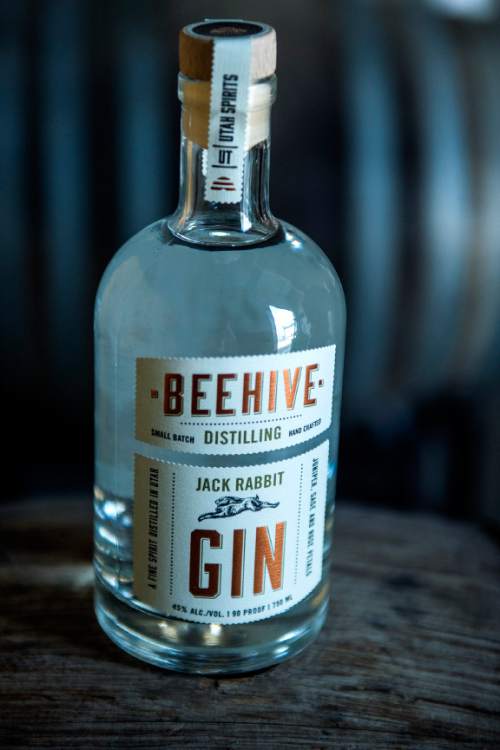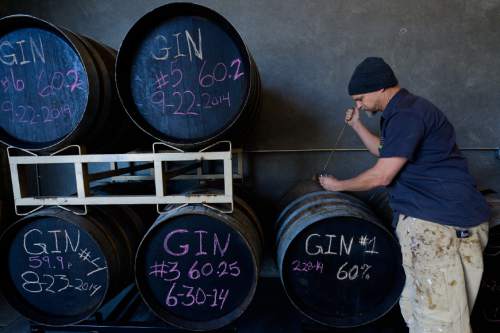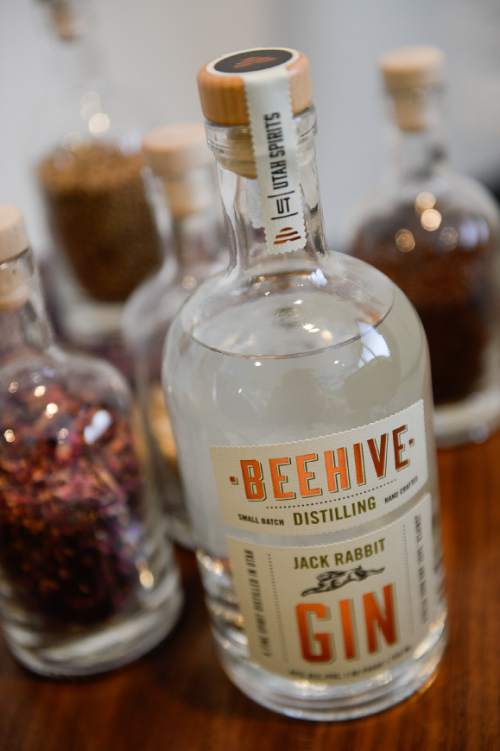This is an archived article that was published on sltrib.com in 2015, and information in the article may be outdated. It is provided only for personal research purposes and may not be reprinted.
Getting a sample of liquor at a Utah distillery keeps getting easier.
On Tuesday, Beehive Distilling and Sugar House Distillery, both in Salt Lake City, were granted educational permits from the Utah Department of Alcoholic Beverage Control commission. The permits allow customers who have paid to take an educational tour of the operation a chance to sample the alcohol products made on-site.
At Beehive Distilling, which makes gin, tours will cost $10 per person and will include a discussion of gin history, the botanicals used to make the spirit, the distillation process and Beehive's unique barrel-aging process, co-owner Erik Ostling told the commission. At the end of the tour, guests will have the opportunity to taste and compare five gin samples that are a half-ounce each.
Being "able to taste the juniper and smell the sage within the product" is a key component to the education process, he said.
The process will be similar at Sugar House Distilling, where tours of the vodka-making process will cost $4 a person and include three, half-ounce samples, distiller Jake Wood told the commission.
Educational tours at both facilities will have to be scheduled in advance — no drop-ins. The tours and sampling are only open to those 21 and older. Both distilleries have licenses to sell full bottles of their products on site.
Most distilleries in the U.S. and around the globe offer tours to consumers, showing them the spirit-making process from grain milling and mashing to distilling and aging. Tours usually end with sampling, which allows customers to smell and taste the subtle differences of the distilled products.
Tastings at distilleries, however, were not allowed in Utah until four months ago when the commission granted the first educational permit for liquor sampling to High West Distillery and its new whiskey-making facility in Wanship.
Tasting has caused confusion in the state for many years as culinary schools, restaurants and even grocery stores in Utah have been able to offer alcohol classes and tastings, under the educational liquor permit offered through the state.
Wineries in Utah also can offer samples. But breweries and distilleries cannot.
Many Utah beer, wine and spirit manufacturers get around the limited tasting law by expanding their businesses and spending extra money to get a restaurant, tavern or bar license from the DABC. The educational permit is another way to offer products to consumers without violating state law.
Members of the Utah Liquor Commission have said they hope the Utah Legislature will address the larger issue of tastings/samplings and the inconsistencies that exist among breweries, wineries and distilleries.
Sen. Jerry Stevenson, R-Layton, has said he plans to draft a bill that would bring more consistency to the liquor-tasting issue. Stevenson is expected to lead any liquor-law changes, replacing former Sen. John Valentine, who left the Legislature last year to head the Utah Tax Commission.







